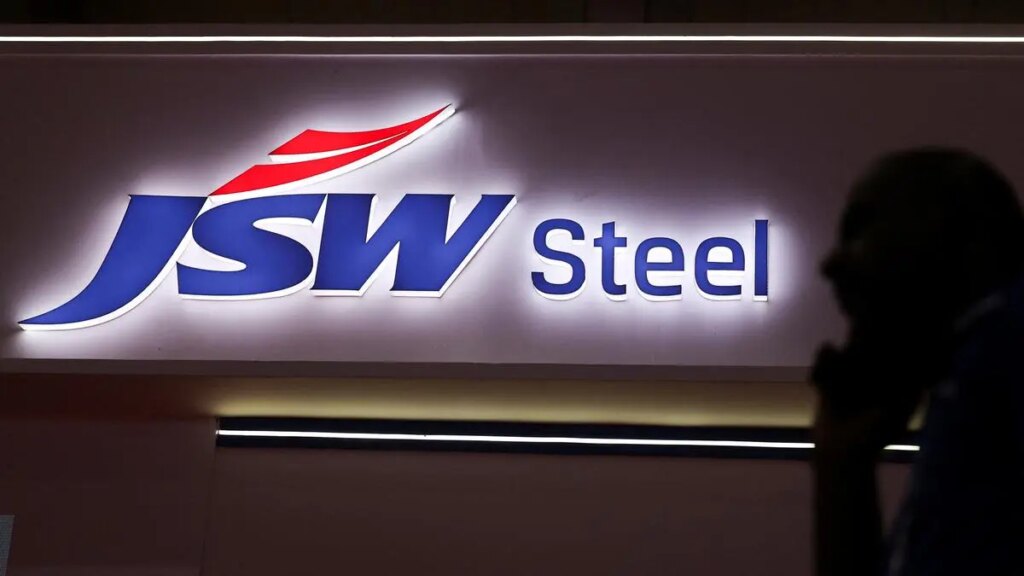
JSW Steel faces challenges importing coking coal from Mongolia, sources say
JSW Steel Mongolia Coking Coal Import Challenges: Supply Chain Crisis
Table of Contents
- Introduction to JSW Steel’s Mongolia Coking Coal Challenge
- Supply Chain Diversification Struggles
- India’s Coking Coal Dependencies and Vulnerabilities
- Strategic Diversification Efforts and Roadblocks
- Geopolitical Complications in Coal Sourcing
- JSW Steel’s Current Supply Strategy
- Future Outlook for Mongolia Coking Coal Imports
- Implications for India’s Steel Sector
JSW Steel, India’s largest steelmaker by capacity, is facing significant challenges in its efforts to diversify coking coal supply chains by importing from Mongolia. With a target of 2,500 metric tons, the company’s strategic initiative has encountered major bottlenecks including unresponsive suppliers, transport congestion, and logistical hurdles – highlighting the complexities of reducing dependence on traditional Australian imports in the steel manufacturing sector.
Introduction to JSW Steel’s Mongolia Coking Coal Challenge
JSW Steel’s ambitious plan to source coking coal from Mongolia represents a critical component of India’s broader strategy to diversify raw material supply chains for its booming steel industry. As the largest steelmaker in India by capacity, JSW’s efforts carry significant weight for the sector’s sustainability. The company has targeted importing approximately 2,500 metric tons of coking coal from Mongolia, but this initiative has encountered substantial obstacles that threaten to derail the diversification strategy.
Mongolia coking coal imports have emerged as a potential alternative to India’s heavy reliance on Australian sources, which currently account for more than 50% of the country’s coking coal supply. JSW Steel’s challenges with Mongolia underscore the practical difficulties of pivoting away from established supply channels, even when strategic imperatives make such diversification attractive from policy and business perspectives.
Supply Chain Diversification Struggles
The struggles JSW Steel faces with Mongolia coking coal imports center on multiple interconnected challenges. Sources familiar with the situation report that Mongolian suppliers have been largely unresponsive to the company’s overtures, creating fundamental obstacles to establishing reliable business relationships. Even when contact has been established, transport bottlenecks have further complicated the process, with severe congestion along key supply routes presenting logistical nightmares.
Mongolia’s status as a landlocked country compounds these challenges, as any export strategy must necessarily involve transit through neighboring territories. The most direct routes would involve Chinese territory, which introduces additional geopolitical complications given the sometimes tense India-China relationship.
| Company | Target Import Volume | Current Status | Challenges Faced |
|---|---|---|---|
| JSW Steel | 2,500 metric tons | Implementation struggles | Unresponsive suppliers, transport bottlenecks |
| Steel Authority of India | 75,000 metric tons | Under consideration | Evaluating feasibility, watching JSW’s experience |
India’s Coking Coal Dependencies and Vulnerabilities
The JSW Steel Mongolia coking coal import initiative must be understood within the broader context of India’s steel industry dependencies. As the world’s second-largest crude steel producer, India imports a staggering 85% of its coking coal requirements. This dependence creates significant vulnerabilities in the supply chain, especially given the concentration of imports from Australia.
India’s rapidly expanding economy and ambitious infrastructure development plans have fueled unprecedented steel demand, making reliable access to coking coal a matter of national economic security. The country’s steel production capacity continues to grow, with forecasts suggesting continued expansion over the coming decades. This growth trajectory makes diversification of coking coal sourcing not merely desirable but increasingly necessary from a strategic perspective.
India’s Coking Coal Supply Profile
- 85% of requirements met through imports
- Australia provides more than 50% of imported coking coal
- Other significant sources include Russia, United States, and Mozambique
- Domestic production limited by quality and quantity constraints
- Annual import volumes growing with steel production capacity
Strategic Diversification Efforts and Roadblocks
Mongolia has been identified by Indian steel industry experts as a potential source of high-grade coking coal at competitive prices. The country possesses significant reserves of this critical steel-making ingredient, making it theoretically attractive as an alternative to traditional suppliers. JSW Steel’s current difficulties, however, illustrate the gap between strategic intent and operational execution in diversifying coking coal supply chains.
The challenges extend beyond simply identifying alternative sources. Establishing reliable business relationships, navigating cross-border logistics, ensuring consistent quality, and maintaining cost-competitiveness all present significant hurdles. The JSW Steel Mongolia coking coal initiative has encountered obstacles in each of these areas, highlighting the complexities involved in pivoting away from well-established supply relationships.
While immediate challenges persist, industry analysts suggest that developing the Mongolia relationship remains strategically valuable. Even modest initial volumes could establish pathways and precedents that might be expanded over time. Successfully navigating current obstacles could position JSW Steel advantageously as India’s need for diversified coking coal sources continues to grow.
Geopolitical Complications in Coal Sourcing
The JSW Steel Mongolia coking coal import challenges are further complicated by regional geopolitical dynamics. Since the 2020 border clash, India-China relations have remained strained, impacting potential transit routes through Chinese territory. While recent diplomatic engagements have shown signs of improving relations, with both nations working to resolve trade differences, practical cooperation on transport corridors remains challenging.
These geopolitical considerations add layers of complexity to what might otherwise be straightforward commercial arrangements. Alternative routes through Russia have faced congestion issues, limiting their viability as consistent transport corridors. The geopolitical dimension transforms what would be merely logistical challenges into strategic considerations that extend beyond normal business planning.
JSW Steel’s Current Supply Strategy
In response to these challenges, JSW Steel continues to maintain a diversified sourcing strategy for coking coal. Currently, the company imports approximately one-third of its coking coal requirements from Russia, with the remainder coming primarily from Australia, the United States, and Mozambique. Company leadership has indicated that while they continue to pursue Mongolian imports, they do not plan to significantly increase Russian imports, citing the importance of maintaining geographical diversity in the supply chain.
This balanced approach reflects both commercial prudence and strategic thinking. While the Mongolia coking coal relationship presents difficulties, JSW Steel appears committed to continuing efforts to establish this supply channel, recognizing its potential long-term value despite short-term challenges.
Future Outlook for Mongolia Coking Coal Imports
According to JSW Steel’s Chief Executive Jayant Acharya, the company remains open to acquiring coking coal assets based on commercial and strategic viability. This approach suggests a long-term commitment to supply chain diversification, even as immediate efforts face obstacles. Meanwhile, India’s Steel Secretary has indicated that the country’s coking coal imports are expected to increase substantially due to limited domestic availability and expanding steel capacity.
Industry experts suggest that successfully establishing even modest import volumes from Mongolia could create precedents and processes that facilitate larger volumes in the future. The current challenges, while significant, may represent growing pains in what could become an important component of India’s coking coal supply strategy.
Implications for India’s Steel Sector
The challenges faced by JSW Steel in sourcing Mongolia coking coal highlight broader complexities in supply chain diversification for India’s steel sector. As the country continues its trajectory as one of the world’s leading steel producers, securing reliable and diverse sources of coking coal remains crucial for sustainable growth and international competitiveness.
Other major Indian steel producers, including the state-owned Steel Authority of India Limited (SAIL), are watching JSW’s Mongolia initiative closely. SAIL is reportedly considering importing up to 75,000 metric tons of Mongolian coking coal, but its decision may be influenced by JSW’s experience. The current challenges therefore have implications that extend beyond a single company to impact the strategic planning of India’s entire steel industry.
Successfully navigating these challenges will require a combination of commercial ingenuity, diplomatic engagement, and strategic patience. The outcome of JSW Steel’s Mongolia coking coal initiative may serve as an important indicator of India’s capacity to diversify critical supply chains in an increasingly complex global environment.
Key Takeaways on JSW Steel’s Mongolia Coking Coal Challenges
- JSW Steel’s Mongolia import initiative represents a strategic effort to diversify away from traditional suppliers
- Current challenges include unresponsive suppliers and significant transport bottlenecks
- India’s 85% dependence on imported coking coal creates substantial supply chain vulnerabilities
- Geopolitical considerations complicate what might otherwise be straightforward commercial arrangements
- Success or failure of this initiative has implications for India’s broader steel industry strategy






